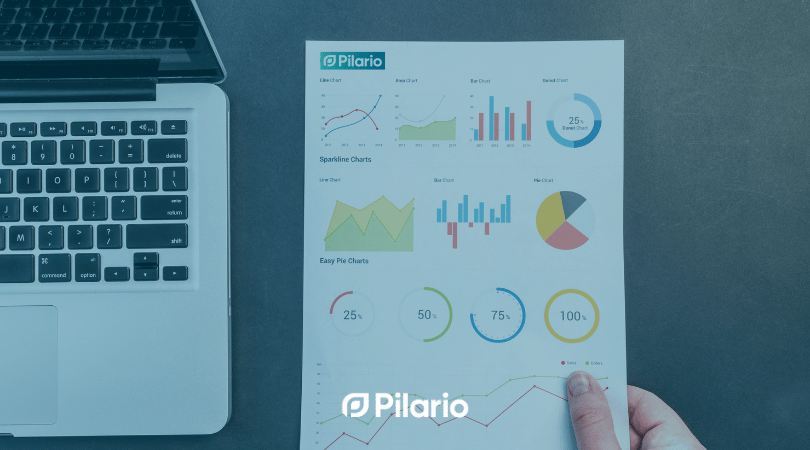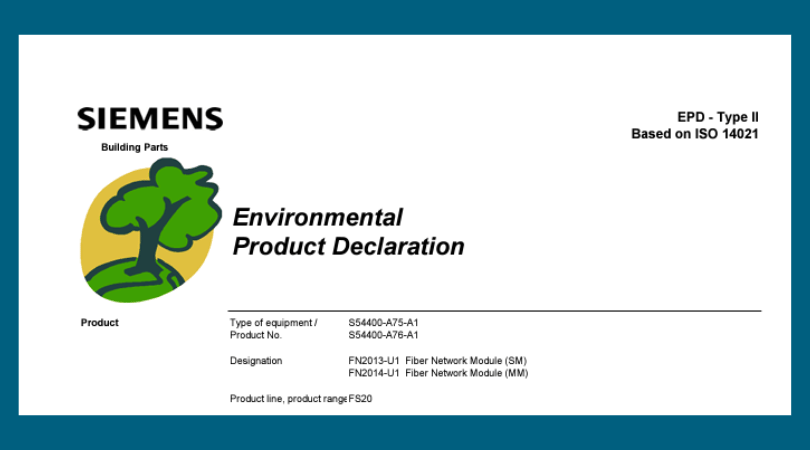
26 October 2023
EPDs: Sustainable Business & Conscious Consumption
Environmental Product Declarations (EPDs) will guide us toward a greener future. This blog post explains what EPDs mean for both consumers and businesses, the hurdles they face, and a practical solution to make the most of its advantages.
Whether you’re a business owner or a conscientious consumer, this article will empower you to make informed decisions that prioritize environmental responsibility.
What is EPD ?
An Environmental Product Declaration (EPD) is a comprehensive, standardized document that details the environmental impact of a specific product throughout its entire lifecycle, based on a holistic LCA approach. Within these declarations, you’ll find extensive data about raw material extraction, the production processes, the transportation, and the end-of-life disposal. That is why EPDs play a crucial role in measuring a product’s environmental footprint, helping stakeholders in comprehending the ecological consequences of their choices more easily.
The importance of EPDs can be shown in different ways. They empower consumers to make environmentally conscious decisions, based on its information. In a world where sustainability is a pressing concern, EPDs enable consumers to align their purchasing decisions with their values.
What do EPDs mean for businesses ?
Environmental Product Declarations play a crucial role in shaping the sustainability decisions of companies, allowing them to contribute to a more sustainable future.
In the world of construction, Environmental Product Declarations (EPDs) are already established, thanks to the EN 15804 standard. It defines the essential rules and guidelines for creating and validating EPDs for construction products. EN 15804 simplifies data collection, life cycle assessment methodology, and reporting formats, offering a trusted and standardized approach to EPDs.
Now, let’s delve into some of the key benefits, some use cases and potential downsides that may appear when companies implement EPDs.
Benefits of EPDs for Businesses
- Improve the environmental performance of products and services
As mentioned earlier, EPDs provide a clear and standardized way of assessing the impact on the environment of products across its entire life cycle. By pinpointing areas where environmental improvements are possible, companies can make informed decisions to enhance their sustainability initiatives. - Reduce environmental impact
Through EPDs, businesses gain insights into their areas of operations where environmental improvement is possible. This knowledge enables them to take targeted actions to minimize their carbon footprint, conserve resources, and reduce waste. - Showcasing environmental commitment to customers and stakeholders
EPDs are not just about environmental data. They also serve as a symbol of a company’s commitment to sustainability. By showcasing their EPDs in a transparent way, companies build trust and show they take their environmental responsibilities seriously. - Gain a competitive advantage
In an ever-expanding eco-conscious market, businesses that include EPDs in their strategy, have a strong competitive edge. Consumers are more likely to buy products and services that come with verified environmental data sets, which leads to increased sales and brand loyalty.

Successful EPD Integration Cases
- IKEA has been publishing EPDs for its products since 2012. By 2021, it had published over 1,000 EPDs, covering around 70% of its product range. This makes IKEA one of the world’s leading companies in terms of EPD coverage.
- Siemens, a global leader in industrial manufacturing, has used EPDs to enhance its products’ sustainability credentials. This has helped them secure contracts with clients who prioritize environmental performance.
- The consumer goods conglomerate Unilever uses EPDs to communicate the environmental impact of its products, demonstrating its commitment to transparency in sustainability initiatives.
What do EPDs mean for consumers ?
As mentioned above, EPDs can be very valuable for companies, it’s not only valuable for companies but also holds significance for consumers. Let’s explore how consumers can access and use its information for making purchasing decisions and the psychological and behavioral impacts on consumers.
EPD Insights: Access and Application
As consumers become increasingly eco-conscious, they are actively seeking more sustainable purchasing options. EPDs offer consumers valuable information about a product’s environmental impact, empowering them to make those sustainable choices.
Discover how consumers can access and put EPD information to good use:
- Transparency
EPDs offer consumers a transparent view of a product’s entire lifecycle, from raw materials extraction to disposal, allowing them to understand the environmental consequences of their choices. - Comparative Analysis
Through EPDs you can compare similar products, which help consumers choose the product with the lowest environmental footprint. - Informed decision making
Consumers, equipped with Environmental Product Declaration (EPD) information, can make informed purchasing decisions that align with their environmental values. They have the opportunity to choose products that demonstrate lower impacts in critical areas such as greenhouse gas emissions, energy consumption, and water usage. - Environmental Labeling
Some products carry environmental labels that reference their EPDs. These labels, such as the EU Energy Label or Energy Star, make it easy for consumers to identify products with lower environmental impacts.
Psychological and Behavioral Impact
The availability of EPD information can significantly influence consumers’ psychology and behavior:
- Environmental Awareness
EPDs help consumers understand environmental issues better. When people know how their purchases affect the environment, they tend to make more eco-friendly choices. - Influence on Preferences
Consumers often prefer products that are kinder to the environment. Knowing a product’s carbon footprint can influence them to choose eco-friendly options when making purchase. - Advocacy and Drive Sustainability Revolution
Consumers armed with sustainability information can become advocates for sustainability. They may demand more environmentally friendly products, support companies that prioritize sustainability, and even advocate for stronger environmental regulations.
Challenges of EPD
Data Availability and Data Quality
A big problem with Environmental Product Declarations is the company’s data, which may not be available or good quality. EPDs require extensive and accurate information about the environmental impact of a product throughout its life cycle.
Gathering this data is a complex and resource-intensive process. It involves assessing the environmental impact of raw material extraction, manufacturing processes, transportation, product use, and disposal or recycling. The data must be transparent, verifiable, and consistent to ensure credibility.
Cost and Complexity of EPD Preparation
Preparing an EPD can be an expensive and complicated process. It requires investments in data collection, life cycle assessments, and data accuracy. Those investments can be a barrier for smaller businesses. Moreover, the complexity of EPD preparation, including navigating the various standards and regulations, might discourage companies from employing EPDs as a means of showcasing their environmental efforts.
Lack of Awareness about EPDs in the Market
Many companies remain unaware of the range of benefits an EPD can provide. Some may not fully understand the significance of transparently communicating their environmental impact. Consumers may not know much about EPDs and find it hard to understand the given information. This lack of awareness and understanding can slow down using EPDs in order to make eco-friendly decisions.

Unlocking the Power of EPDs with Pilario: Software Solution for Sustainable Success
In conclusion, Environmental Product Declarations (EPDs) empower businesses to enhance sustainability, reduce environmental impact, and gain a competitive edge. For consumers, EPDs offer transparency, influence eco-conscious choices, and drive advocacy for a more sustainable future. However, environmental product declarations face challenges in gathering data, cost, complexity, and lack of awareness among businesses and consumers.
Overcoming those challenges is crucial to succeed in today’s world, where environmental awareness takes center stage. By doing so, individuals and organizations can enjoy the benefits of having and using those EPDs. You can utilize these environmental product declarations as a competitive advantage. That’s why today companies are searching for tools and softwares to easily manage the production of those EPDs.
Pilario offers a streamlined solution for data capture throughout your entire supply chain, with our unique data value chain feature. This feature enables you to collaborate seamlessly with your entire supply chain, collecting and sharing vital data. Afterwards, our software calculates a sustainability rating using our custom, predefined LCA models.
Once the LCA data is successfully imported in the correct EPD format, you’re all set to begin communicating your sustainability efforts to both stakeholders and consumers!
Want to learn more about Pilario don’t hesitate to get in touch with one of our sustainability experts.